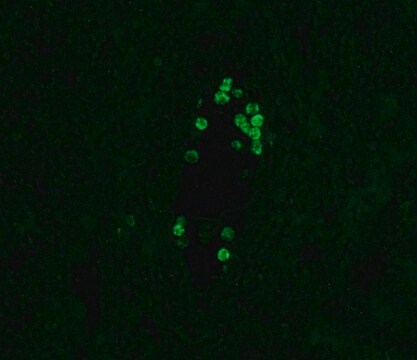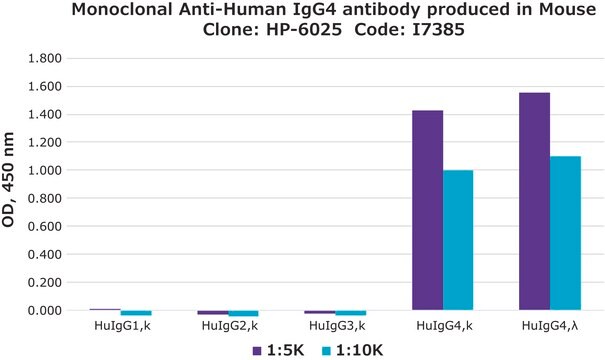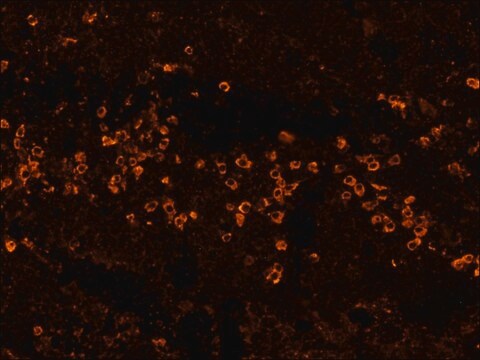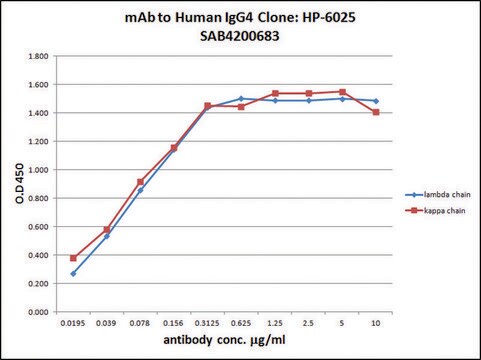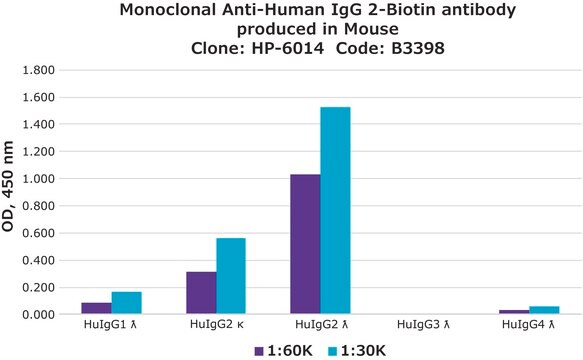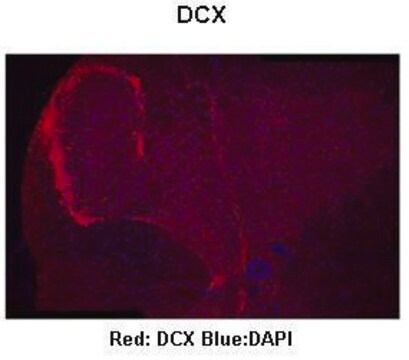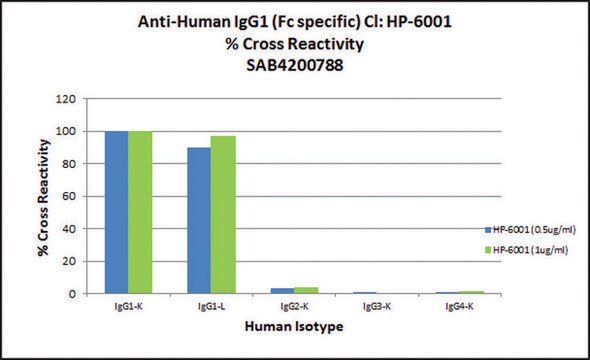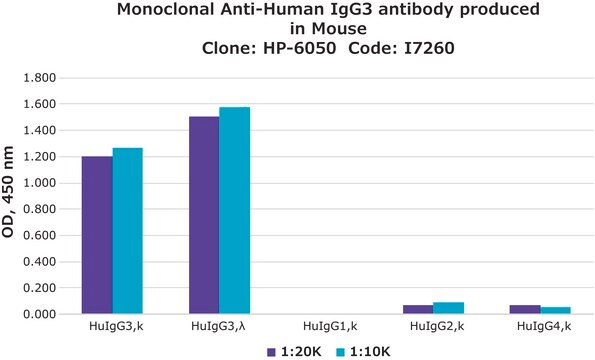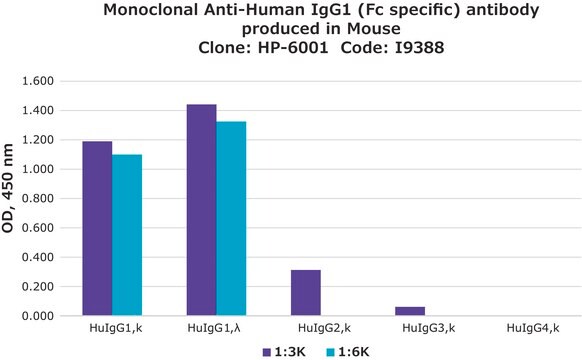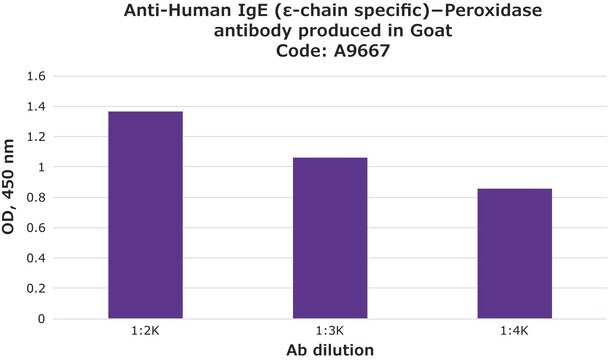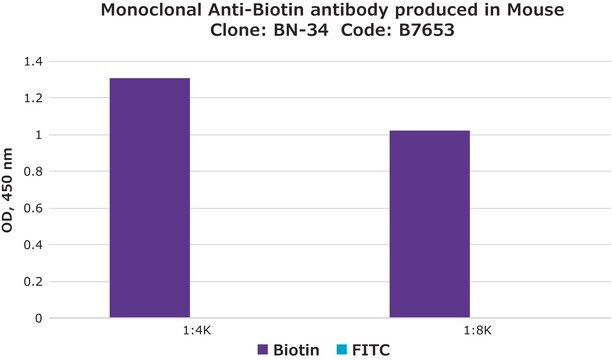B3648
Anti-Human IgG4−Biotin antibody, Mouse monoclonal
clone HP-6025, purified from hybridoma cell culture
Synonym(s):
Monoclonal Anti-Human IgG4
About This Item
Recommended Products
biological source
mouse
Quality Level
conjugate
biotin conjugate
antibody form
purified immunoglobulin
antibody product type
secondary antibodies
clone
HP-6025, monoclonal
form
buffered aqueous solution
species reactivity
human
technique(s)
direct ELISA: 1:60,000
isotype
IgG1
shipped in
dry ice
storage temp.
−20°C
target post-translational modification
unmodified
Looking for similar products? Visit Product Comparison Guide
Specificity
Application
Biochem/physiol Actions
Physical form
Disclaimer
Not finding the right product?
Try our Product Selector Tool.
Storage Class Code
12 - Non Combustible Liquids
WGK
nwg
Flash Point(F)
Not applicable
Flash Point(C)
Not applicable
Choose from one of the most recent versions:
Certificates of Analysis (COA)
Don't see the Right Version?
If you require a particular version, you can look up a specific certificate by the Lot or Batch number.
Already Own This Product?
Find documentation for the products that you have recently purchased in the Document Library.
Customers Also Viewed
Our team of scientists has experience in all areas of research including Life Science, Material Science, Chemical Synthesis, Chromatography, Analytical and many others.
Contact Technical Service